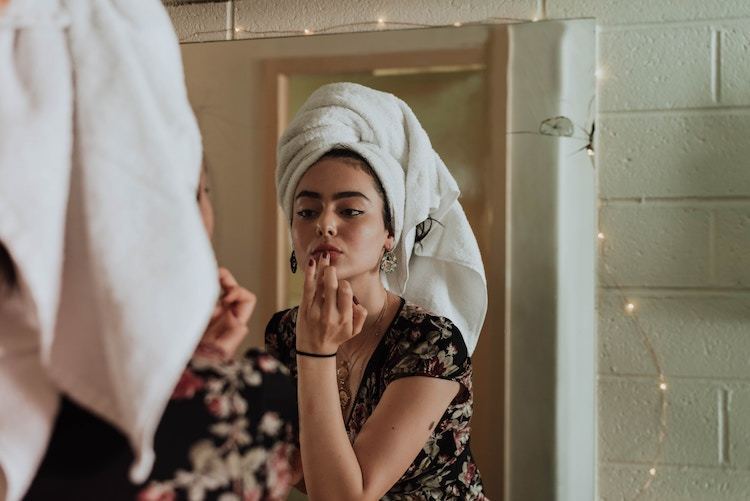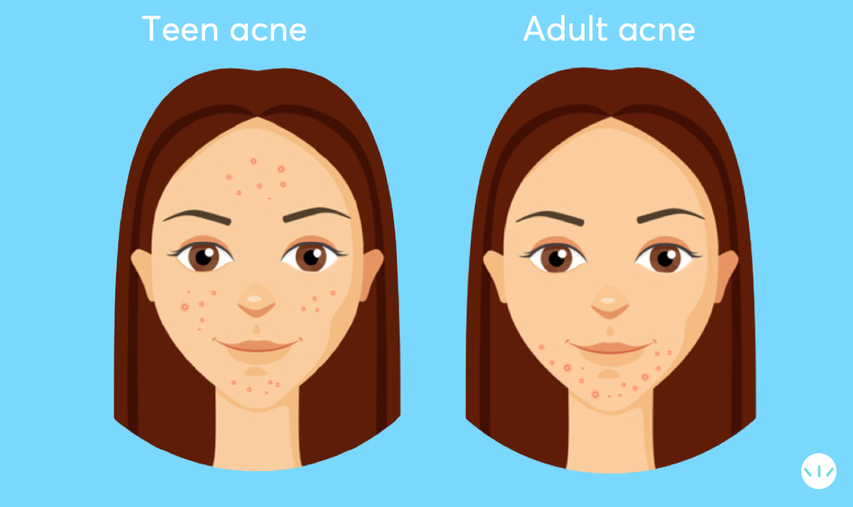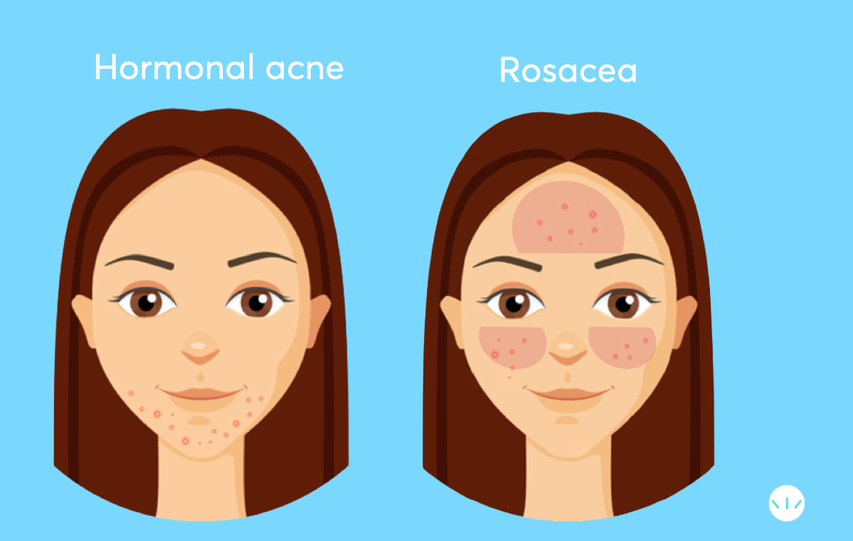Best treatments for adult acne according to Dermatologists

Adult Acne: Causes, Treatments, and Tips for Clearer Skin
Thought your acne would disappear once you reached adulthood? For many, adult acne is a persistent reality. Studies show that over 50% of women in their 20s and 25% in their 30s experience adult acne, which brings its own unique challenges. The good news? Adult acne is treatable, and understanding its causes and treatment options can help you regain control over your skin.
Teen Acne vs. Adult Acne: Key Differences
While both types of acne may look similar, there are a few important distinctions:
- Location: Teen acne often appears on the forehead and cheeks, whereas adult acne tends to affect the lower face—around the mouth, chin, and jawline.
- Persistence: Adult acne is often more stubborn than teen acne, sometimes requiring more tailored treatments.
- Causes: While hormones impact both, adult acne is more sensitive to lifestyle factors like stress, diet, and cosmetics.

Leading Causes of Adult Acne
While hormones and genetics are primary drivers, other factors can play a significant role:
- Stress: High cortisol levels increase oil production and inflammation, both of which can trigger acne.
- Diet: Dairy, sugar, and refined carbs can exacerbate breakouts.
- Skincare and Cosmetics: Products that aren’t oil-free or labeled non-comedogenic can worsen acne.
- Medications: Certain medications, especially corticosteroids and supplements like Biotin, can contribute to acne flare-ups.
Skincare Products and Adult Acne
Using products suited for teenage acne may not work for adult skin. As we age, our skin produces less oil, so products that are too drying can irritate and worsen acne.
- Choose Oil-Free Products: Ensure your skincare and cosmetics are oil-free and non-comedogenic.
- Avoid Harsh Exfoliants: Over-exfoliating can disrupt your skin’s barrier, leading to more breakouts. If you exfoliate, use gentle methods and limit frequency.
Adult Acne vs. Rosacea
Rosacea can mimic acne but has different causes and appears on different areas of the face. Unlike acne, rosacea is more affected by genetics, heat, alcohol, and sun exposure and typically appears as redness and bumps on the cheeks, nose, and forehead, often in older adults.

Top Ingredients for Treating Adult Acne
- Salicylic Acid: This beta-hydroxy acid helps clear pores, reduce inflammation, and prevent breakouts.
- Benzoyl Peroxide: Effective for inflamed acne lesions. Micronized formulas help reduce irritation.
- Retinoids: Promote skin turnover, unclog pores, and improve skin texture. Look for formulations that combine retinol with niacinamide to reduce irritation.
- Sulfur: For sensitive, acne-prone skin, sulfur treatments can reduce redness and inflammation, especially in rosacea-prone individuals.
Best Treatment Plan for Adult Acne
- Topical Treatment: Look for gentle cleansers, a benzoyl peroxide or salicylic acid treatment cream, and a non-comedogenic moisturizer.
- Oral Supplements: For hormonal acne, supplements like DIM (from cruciferous vegetables) may help balance hormone levels naturally.
- Oral Medications: Your dermatologist might recommend birth control, spironolactone, and Accutane (as a last resort) based on the severity of your acne.
Lifestyle Tips for Clearer Skin
- Avoid Touching Your Face: Picking at pimples can spread bacteria and lead to more breakouts.
- Focus on Diet: Avoiding high-glycemic foods and dairy may reduce breakouts.
- Reduce Stress: Regular exercise, meditation, and adequate sleep can help balance hormones and reduce cortisol spikes.
- Choose Your Mask Wisely: If you wear a mask daily, opt for cloth versions instead of plastic-based surgical masks, which can trap sweat and bacteria and contribute to breakouts around the mouth and chin.
Commitment is Key
Consistency is crucial in treating adult acne. Stick to a routine for at least 4-6 weeks to see initial improvement and 12 weeks for optimal results. If your skin doesn’t improve after three months, consult with a dermatologist to adjust your treatment plan.
By choosing the right products, making lifestyle changes, and staying committed to your routine, you can take control of adult acne and enjoy clearer, healthier skin.
References:
Adult female acne: a guide to clinical practice. An Bras Dermatol. 2019;94(1):62-75.
A review of diagnosis and treatment of acne in adult female patients. Int J Women's Dermatol. 2017;4(2):56-71.
Adult-onset acne: prevalence, impact, and management challenges. Clin Cosmet Investig Dermatol. 2018;11:59-69.
For more information about adult acne, click right here.
To find the right acne treatments for your unique skin, take the free skin assessment by clicking here.



